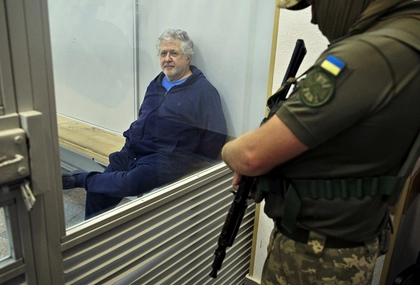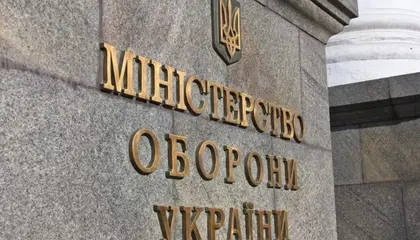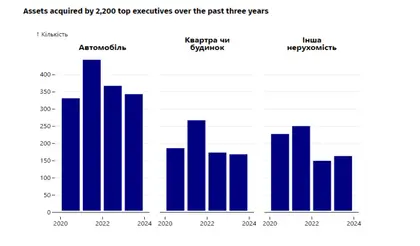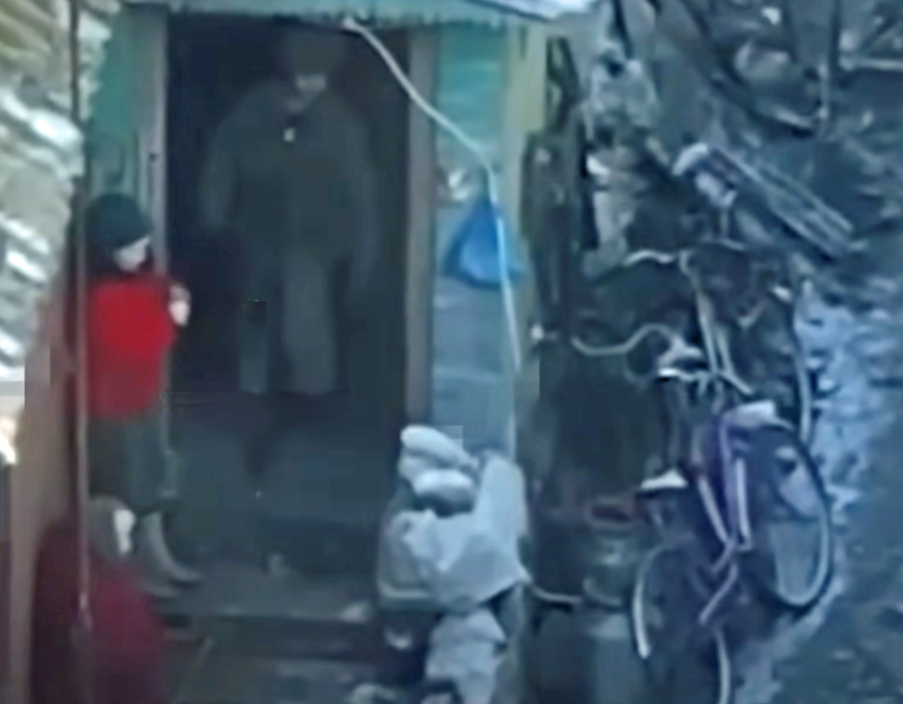The wave of dismissals that swept across top government offices on Jan. 24-25 raises several questions: What exactly happened? Why were so many senior officials sacked in one go, and why now? What might be the outcomes?
What happened?
JOIN US ON TELEGRAM
Follow our coverage of the war on the @Kyivpost_official.
On Feb. 1, we saw the continuation of a large personnel shake-up and a series of high-profile anti-corruption operations. Oligarch Ihor Kolomoisky, for example, was searched in connection with the seizure of property and funds of Ukrnafta, now a state-controlled energy company, but one in which Kolomoisky had had a major stake before the government seized it entirely last November under martial law.
The search of people’s deputy and well-known developer Vadym Stolar is related to suspicions of Russian money laundering by Viktor Medvedchuk.
Here, corruption is intertwined with issues of national security. Former Interior Minister Arsen Avakov was searched in connection with the purchase of French Airbus helicopters, one of which crashed with Interior Minister Denys Monastyrsky inside, killing him and his deputies on Jan. 18.
Law enforcement officers also visited the acting head of the Kyiv tax office. We learned about the announcement of suspicions of corruption against a whole group of current and former high-ranking officials, in particular the former Minister of Energy.
The recently dismissed former Deputy Minister of Defense Vyacheslav Shapovalov and the head of the State Procurement Department of the Ministry of Defense Bohdan Khmelnytsky were also suspected of committing corruption crimes.

Kolomoisky Suspected of Paying to Have a Man Killed
Almost the entire management of the customs office was dismissed, as was the acting head of the State Service of Ukraine on Food Safety and Consumer Protection, and the first deputy head of the State Agency of Forest Resources of Ukraine.
The action is far from a staff revolution – in Ukraine, large-scale staff changes usually follow presidential and parliamentary elections.
The dismissal of several governors together is also not an extraordinary practice. Such things happen quite regularly, for example after local or national elections.
Arguably this is a "staff shakeup" – a term that entered the Ukrainian vocabulary during Leonid Kuchma's presidency. He used to shake up and reshuffle government staff on a regular basis to keep high ranking officials alert and aware of who was in charge.
Why were they sacked?
The reasons are logical. Some of the sacked officials, such as Kyrylo Tymoshenko, deputy head of the President's Office, and Vyacheslav Shapovalov, deputy defense minister, tendered their resignations following the emergence of scandals (personal or corporate).
The Tymoshenko story had been in the public domain for several months. Vitaly Muzychenko (who had been generally praised as deputy social policy minister) also tendered his resignation, but the reasons are unknown.
Oleksiy Symonenko was dismissed from the post of deputy prosecutor general for his long vacation abroad. The president decreed to forbid government officials from traveling abroad during martial law, except on official assignments approved by the National Security and Defense Council.
Ivan Lukerya and Vyacheslav Nehoda, former deputy ministers for development of communities and territories, were dismissed after their offices were incorporated into the infrastructure ministry. Their dismissals may also have been prompted by the ignominious case of their colleague Lozynsky, who was caught red-handed while taking a bribe and is now under house arrest, facing corruption charges.
Back in November, Dnipropetrovsk governor Valentyn Reznichenko got into a scandal over abuse and misuse of funds allocated for road reconstruction in the region. Also last year, there were scandals in the neighboring Zaporizhzhia region where local officials were accused of embezzlement of humanitarian aid and charged with corruption.
The various situations and formal grounds for the dismissals are different, but President Volodymyr Zelensky and his office must have felt that too many officials were taking liberties with their duties, which is inadmissible, especially in wartime. So, he must have decided to remind all public servants that they are bound to live and work as demanded by the state of war, instead of prioritizing their personal interests, or else face being fired or prosecuted.
The president will likely have been infuriated by the scandals around Tymoshenko, Symonenko's trips abroad and MP Mykola Tyshchenko's notorious "Thailand pastime". Of course, the scandals have also helped Zelensky's chief of staff Andriy Yermak and Prosecutor General Andriy Kostin to remove competitors from their offices.
On top of that, news outlet Dzerkalo Tyzhnia had exposed corruption schemes in the food procurement for the Defense Ministry.
Why has it happened now?
The answer to this question is simple – it boils down to the critical mass of evidence when at a time when all eyes are on corruption in Ukraine.
The dismissal of top government officials is not only a way to rein in those officials and politicians who forget about the war and take liberties; it also sends a signal to the Ukrainian public and international partners: Kyiv does take heed of criticism, journalist investigations and reported facts of corruption.
In December, the Special Anticorruption Prosecutor's Office (SAPO), the National Anticorruption Bureau of Ukraine (NABU) and the National Agency for Prevention of Corruption (NAPC) stepped up their activities, targeting government officials and lawmakers suspected of bribery and concealing assets. Notably, most of the latest dismissals resulted from journalist investigations and public criticism. Ukraine's civil society and international partners remain active drivers of the country’s anticorruption policy.
The latest wave of investigations and shake-ups has also had a tangible anti-corruption focus. It is likely that these operations were timed to send a message on the eve of the Ukraine-EU summit, due to take place on Feb. 3.
An active anti-corruption policy is one of the main criteria for Ukraine’s integration into the EU. Hence, the purge and high-profile anti-corruption investigations.
What are the likely outcomes?
Essentially – higher efficiency of state governance; increased activity and more responsible behavior of officials; and a harder clampdown on corruption.
However, as Ukraine’s experience shows, these outcomes are still far from feasible in the near term. Acts of corruption cause resentment, indignation and outrage among the military fighting at the front and the general public in the rear. They reduce the potential of Ukrainian resistance and can be used by those in the West who are against assisting Ukraine. That is why intolerance to corruption and anticorruption efforts must only increase and the latest dismissals should only be the beginning.
It is certainly necessary to step up the fight against corruption and other abuses in the defense sector, but anticorruption investigations should not disorganize the Defense Ministry's work and should not disrupt the procurement for the Armed Forces of Ukraine (AFU).
It should also be taken into account that Russian special services conduct informational-psychological operations aiming to undermine trust in the AFU and provoke conflict within the political leadership and society. The enemy seeks to destroy the unity of Ukrainians, hence why it is necessary to find an optimal balance between the interests of fighting corruption and those of national security.
Will the various corruption scandals and Ukraine’s response influence the level of international support for Ukraine?
The U.S. and the EU have welcomed Kyiv's clampdown on corruption and have pledged further military-technical and economic support for Ukraine. At the same time, they have tightened control over the use of the funds they provide. Their control should be coordinated with that of the Ukrainian anticorruption institutions and the general public.
As far as staff changes are concerned, there will definitely be more to come. The Cabinet of Ministers is expected to liquidate several ministries. Besides, some ministers are already at risk due to criticism of their activities. Under the harsh conditions of war, inefficient officials must and will be culled. Therefore, further staff shakeups are inevitable.
The views expressed are the author’s and not necessarily of Kyiv Post.
You can also highlight the text and press Ctrl + Enter






